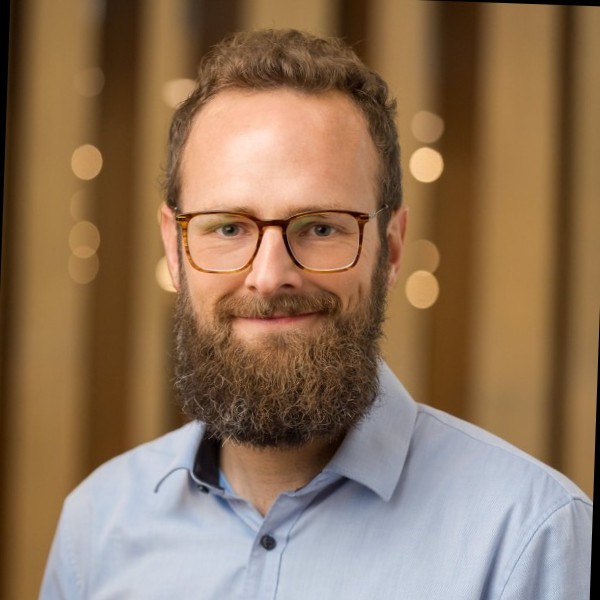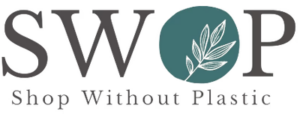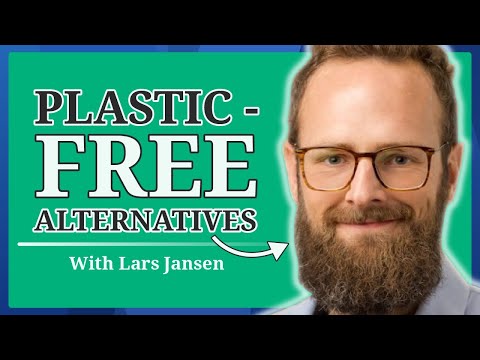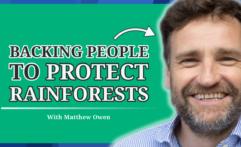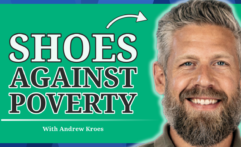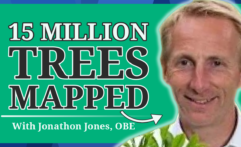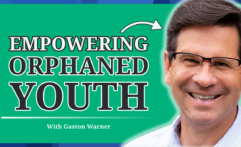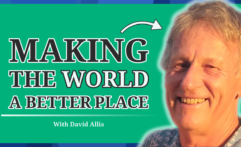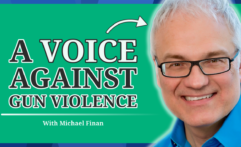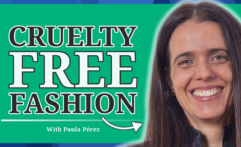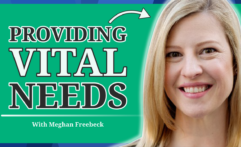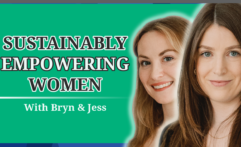Dennis: Hello, and welcome to the Impactful Ninja Show. I’m your host, Dennis Kamprad, and today I’m joined by Lars Jansen from Shop Without Plastic. Lars, welcome.
Lars: Thanks for having me. Pleasure to be here.
Dennis: My pleasure. Happy having you as well. Now before we get into your story and everything that led into, well, I’m basically starting with our plastic and what you’re doing there. Give us a brief overview. What does Shop Without Plastic do? What are you doing there?
Lars: Yeah. So, I started, stuck with our plastic or swap together with my wife, and we basically just wanted to play a small role in finding plastic occlusion. And swap is actually has 2 meanings to it. So it’s kind of a word play. One meaning, as you already mentioned, is shop without plastic. So it’s just like an acronym. So that means we offer plastic-free sensors for daily life, mainly for, the bathroom and kitchen, because that’s when most plastic waste, accumulates. But the second meaning of swap is just the word swap, swap out stuff. and it almost goes back to, like, a model we kind of adapted when we try to a little more sustainably and reduce the plastic in our lives because we just got overwhelmed and just didn’t know where to start because literally everywhere in our lives there was plastic from brushing your teeth, to doing the dishes, to doing laundry, literally everywhere we just got surrounded with plastic, and we just got to a point where we said, Come on. Screw it. We just have to do it swap by swap or like step by step, and then we started to look at our waste and just swap by swab, exchange plastic products with more sustainable alternatives, and that’s how the name kind of found itself doing stuff swap by swap and then shop without plastic. So, one part of this is the online shop that we wanted to make sure we also offer resource is. So, guides that share our experience, how we went at it, and how we found our swap by swap. And so, hopefully, we just help our users and customers to find what’s right for them and swapping out a couple of plastic items without really the need to be perfect and be zero waste and just lim out of, like, one last job for your whole year because we think as long as you’re doing something, That’s awesome.
Dennis: Right. So it’s basically a twofold approach on the one hand side. If someone listening and wants to change their plastic utensil from the kitchen, from the bathroom, from other places to swap them out either at the end of the life, or when it comes closer, they could go basically to your shop before plastics hop and have a look, okay, which which plastic free replacements are available. But on the other hand side, the second part is also the education part of it. So, basically, if I’m, let’s say if I’m not sure where to start or if I wanna learn more about your journey, I could also just have a look at the articles and the content that you post that’ll basically get some inspiration, some starting points?
Lars: Yeah. Exactly. So, we have a bunch of guides. So for 0 waste, kitchen, 0 waste bathroom. we also got, like, more educational articles about plastic pollution and also, for example, right now, we got a series of articles, monopost, that are about how do X Y Z contribute to pollution. So the first one was how do plastic bottles contribute to pollution where we look beyond the obvious, like throwing a bottle away and just, yeah, kind of try to educate about, hey, plastic usage isn’t just about, like, throwing something away, but it’s actually using crude oil. It’s, got a pretty bad CO2 impact. There are so many good alternatives out there. And, yeah, just try and educate yourself, try and find the right swap for you, and then it actually can be quite easy. Mhmm. So that’s possible.
Dennis: Rory taking away kind of some part of your latest story. on your journey. And let’s let’s take one step back, or, at the moment, and let’s have a look at your background. What what did you do? What’s your what’s your story? What did you do before starting with stop or stop loss again.
Lars: Both my wife and I, we circuit corporate jobs, and we’ve, also been doing that for many years. So I myself I’m in consulting. so I consult my clients about, like, generically process optimization, get a little bit of, exposure also to light sustainability, but, also, focused a lot on, like, analytics and using data analytics optimize business processes and to reduce the waste in business processes. So to say, so a little bit of, like, exposure to, sustainability also my wife is in ecommerce. So she’s a major program manager, in ecommerce, which also came in kind of handy, but, what really made us found swab was we’ve always been outdoorsy people, I’d say. So we’ve always loved hiking, camping, and just try to spend all the time we have in nature. And what kind of sucks is whenever you’re in nature, we found ourselves on, like, 6000 foot mountains. and we found plastic. Like, there were plastic packages lying around. So for quite some time, we just try to, for example, take a bag with a when we hike and just grab whatever we come across. Also started to organize, like, small cleanups, but then we get to a point where we just said, Hey, actually, like, cleaning up things is good, but we’re not really solving anything. We also have to look at our own consumption and the amount of waste we produce every day because, like, we pick up one plastic bottle and a thousand more get produced in the same second. I think the idea about doing something about plastic waste, has been there for probably, like, 5, 6 years. How are, but, not really specific. So that’s we kind of try to find our way in doing something.
Dennis: You get some, quite some strong background, which would be interesting to get into as well for the starting point.
Lars: true.
Dennis: But then also how it really started in your minds was were just annoyed by by all the plastic pollution, even if you’re just clamming in amounts like super high altitude, There’s always plastic. And the first step was to to help and clean up the plastic locally, but then you figured out maybe it needs more like a systemic change. And one of the ways you’re thinking about our were were going about it was to basically create plastic free alternatives. If I capture it correctly, nice and The background that you mentioned already is like 2 super interesting things when kind of thinking about starting like a e commerce shop. 1, the e commerce background from your wife. And the second part is also you have some from the consulting, some sustainability, and some process optimization background. How would you say asset? Has that helped you, like, in the decision of starting an e commerce store?
Lars: I think my background mainly came in when it came to 2 things. 1, I just love, like, digging through stuff and kind of solving problems. That’s like my nerdy kind of side, from the analytics part, And but then the kind of process side of things, I think, helped in being super critical about, is it actually sustainable, what we’re doing? when we, for example, did the supply research, we found many, many, suppliers that were all across the world. So we had to decide, okay, are we taking, for example, a product from Europe or North America that is more expensive But then we have, for example, transparent production environment. We had transparent supply that we can choose. So just like that critical thinking about is actually the whole process from your auto something to you in the end, get your product sustainable. And I think my wife’s background, she’s a project program manager in ecommerce. So she just loves managing stuff. and as we start and swap, on the side, and it is still a hobby. We need to be really careful about, like, when we spend our time and what we spend our times on because most of the work is happening either on the weekend or the early mornings or in the evenings, we did do 1 or the other hour. so that’s, like, staying focused, staying organized on what really happens. I think that’s the main kind of pieces where our backgrounds came in.
Dennis: Nice. And you mentioned some really, really interesting points already with what we’re doing, or basically when we’re doing search into any kind of materials or any any kind of processes. One thing that we always use is the life cycle assessment. And that’s basically what you what you mentioned when you’re looking into your suppliers, it’s not just like, hey, how does the finished product look like, and maybe the materials is good, but looking to the whole supply chain, but then also the implication, okay, what happens when it’s shipped out is the, maybe, the shipping distance just way too long between where it’s shipped and where it’s sold. essence. Yeah. Super interesting. When it comes to the concrete first step. So you mentioned you had the idea about doing something like swap for, like, 5, 6 years before started. You mentioned your your background, and then the idea to make it more concrete. How how did that happen for you? And what was the concrete first step? How did you get swap basic from, from my idea to, to something, well, that we can all see now.
Lars: Actually, one big change in our lives played very important role because originally we were from Germany. so all of that, like, the first idea and the first kind of we wanna do something that all started in Germany. And then at the beginning of last year, we, moved to Canada with our jobs. so we were already like super out of our comfort zone, with, like, a big move across the Atlantic, but then also settling in in Canada and North America, we found that it was already super hard to find some of the products. We found it even harder in North America, and we thought, hey. There have to be other people like us who also wanna Be more sustainable. If we don’t do it now, we won’t ever do it. And let’s just start it right now. Let’s look into how it could specifically look like. And, yeah, really kind of offer that platform or offer that charm and resources for the North American market to help our users and customers to figure out where can we actually get these in alternatives. And then the specific first steps were back in Germany. We already had found our products. We trust and we used ourselves, basically had to do it all over again in in North America and find supplies that delivered to North America. test products, like kind of find our product portfolio that we wanna launch that we are also convinced of. That’s mainly what Avid did, my wife. And I mainly focus on how do I actually launch an online shop because I didn’t have a clue about it. So I did a bunch of online courses, kind of sketched it all out on a piece of paper and with mock ups. And then we reached a point where we just sat Come on. Now we launch it and we look from here and just iterate and ask people and get feedback and just get better and better. And that when 8, 9 months ago, we launched the website.
Dennis: Sounds like, like, from a classical change management perspective, sounds like a typical story where You come from one environment. You have, like, see everything that’s working. You have your routines. You have everything that’s happening there. You go into a different environment and some university like, oh, Why are these things not here, or why is that so different? And then with your background only of wanting to do something about the plastic waste, it was like the perfect starting point. like, 8 months ago. Yeah. And then you mentioned also 2 things as the concrete starting point. one is looking into suppliers. And the second thing is, well, basically getting a website also that people could could also get the products that you you’re getting from your suppliers. Mhmm. What were the next steps? Like, walk me along the journey, like, for the next 8 to 9 months until until we basically know? when we’re speaking, what were our next steps to to make spot crawl more and to get the awareness out and maybe what were also some of the challenges along the way.
Lars: So we started off with the idea of being kind of a social media brand and kind of, utilizing Instagram and growing our followership there, which also was kind of successful in the beginning. So we launched a couple of Instagram ads that also got some products sold, but quite quickly, we kind of realized that one, it’s not really sustainable in a sense that it’s not really long term because if you don’t pay Instagram ads, you don’t really get any customers. We still have Instagram, but with a different goal in mind, really just to connect to users, customers, people that think the same as us, also, obviously, to promote our content and to just get into the discussion customers and users. And that was one of the biggest challenges, I think, and one of the biggest changes because we realized when you launch an shop and you don’t have an audience, you’re not really getting any traffic. So, like, the 1st 3, 4 months, we just basically got paid traffic to our side, just from Instagram and Facebook. And, we quite quickly realized that, yeah, again, this can’t be sustainable. We really need to think about do we set it up in the long run? And that’s when we really shifted the focus to a little bit like more research based articles, focusing really 90% on the block to, optimize our website, to get Google traffic, but also to enhance the quality of both our online shop and our site to really give users what they are searching for. So, like, quite honestly, the first version of the online shop, I I don’t think I would have bought that. Like, it was, more of a, yeah, more of a trial and error. But, yeah, we’ve come a long, long way since then. And how we did that is just From the beginning, we asked everybody, we basically talked to what they thought, and we just gathered feedback and feedback and feedback iterated and, kind of got to a stage where now we make a small profit, which is far from, far from making us rich or something like last month was the 1st month where we basically broke even and covered our costs.
Dennis: And from now onward, we’re really looking into, how do we set it up for the long run? Basically, taking, like, just getting something out there, like, some minimal viable shop, and then iterating with all the feedback and now congrats on on having, like, a turning point and becoming profitable. Sounds like for the first time, let’s see where it goes from here. Yeah. From things. So, basically, if let’s just say I wanna replace some of the products that I’m using with some more plastic free alternatives. What would be my best way to to go ahead? Would I just, like, go into the shop and have a look at, like, what all stuff, like all the products that you have, or would you have any resources on, on your blog that that will walk me through the big picture?
Lars: I think a good way to start is with really our articles about 0 waste bathroom, 0 waste kitchen. We also have, like, guide on room by room, all of our guides, are not exclusively based on our online shop. So it’s just like an educational resource. Some of the products in that guide you can find on our shop some of them, you can’t. So for example, we just made a decision that it’s not worth it, offering drinking bottles and coffee mugs. which, one of the most important swaps to me, but, yeah, just looking into shipping, looking into the, as you said, like, the whole life cycle. We just thought it’s not really a sustainable thing to order online. we also were in convincing of the of the quality. So just look into one of our guides and, think about what would be a good place to start and what would be a good thing that you can actually incorporate in your, in your daily lives. Mhmm.
Dennis: Awesome. Sounds like I could basically, well, we, we put the link to the website, in the video and the show notes as well. it sounds like basically depending on which room I wanna start off as a consumer. I could have a look into your guide, see for the room, make some of the bigger swaps I can make. If you happen to have the products, I would be able to find them there. Otherwise, you would still recommend the the good swaps people can make and would just link out to Well, so the products I would assume.
Lars: Yeah. For sure. The other thing we have, and that’s, I think, also a good thing to start if you already know, hey, you really wanna go big and change, or do multiple swaps at the same time. We also have, starter kits. So I think that’s also a good, good place to start where you have like, dishwashing starter kit, for example, with a wood brush and a solid dishwashing block, or you have a bathroom starter kit with, like, shampoo and body wash and, like, a soap dish. So, yeah, just like room by room and actually start thinking about your own life, where do you have the most exposure to plastic and then just think about what would be the easiest thing for you to do without really being annoyed or feeling the change.
Dennis: Basically, to make it fit into your daily life without feeling like you have to compromise on anything.
Lars: Exactly.
Dennis: Nice. No. So it’s awesome, especially with kind of getting basically getting started and seeing it’s not the craziest thing life goes on. And also the products do they do work chest in the same way, but you tremendously reduce some plastic waste.
Lars: Yeah. For sure.
Dennis: Now if you’re looking into the future, what are your plans if you, if you had to think like, let’s say, year 2 or even more years ahead, where do you see swap and what are some of the exciting things that you’ve planned for us?
Lars: As I already mentioned, we kind of set up the whole thing as a hobby because we wanted to get started, and we were excited. So I think one of the first priorities we need to think about is really setting it up as kind of a business rather than a hobby, and really finding sustainable, like, revenue model going forward, where we can slowly scale our revenue and our profits So things like, for example, renegotiating supply contracts with our, orders and maybe a little more negotiation, leverage just to, yeah, reduce our costs. But then I think in the long run, we have many, many ideas. so One idea is obviously to go Worldwide, to go global. Now we’ve kind of focused on the North American market. We found our suppliers there. Let’s try to find ways to ship globally, and still stay sustainably. So I think next step would be UK and then Europe, maybe Germany where we still know which products are good. But then, we also have ideas about, for example, having something like a subscription based model where it gets even more convenient because in the past, we found ourselves that if you order something online, some of the, or a lot of the products we actually offer are like daily essentials. And, some of the things you don’t really plan for. So, for example, you’re dish washing. So, it’s just empty and by a new one or toothpaste. So based on that, we thought, actually, let’s make it even more convenient for our, customers. They don’t even have to worry about buying a new product, but get it right to their door every month, for example. And then, last but not least, One of the very early ideas we had, and, it’s probably a little further down the road because, I think it’s not that easy technically, but we’d love to have some kind of membership system where you can actually see how much plastic you saved by swapping out stuff because, there are calculations on, like, estimations you can do if you, for example, buy a dishwashing block that on average saves you 4 bottles of plastic. So it would be really awesome to have, like, some kind of portal for our customers to log in and see actually how much plastic they already saved because it’s just a nice way to showing, that you really are making an impact.
Dennis: Awesome. Now before we go into the into the next part of basically you sharing a little bit of the, well, the personal changes that you made and some of the tips for viewers as Is there anything we forgot about speaking or whatsoever that I forgot asking you?
Lars: Just maybe to reemphasize that. I think it’s important not to be perfect. When we kind of got into researching and trying to reduce waste, we found that some of the resources we found were a little from our perspective a little to perfectionist. So that’s when we started that whole thing about taking it swap by swap. And just as long as you do something, That’s awesome. Nice.
Dennis: It’s also a perfect transition to the to the next and and final part. When you reflect on on your workforce up and also everything that was leading up to it. How would you say has your personal life changed based on all your research and everything that you’ve done
Lars: researching for the shop and obviously testing products helped us to reduce our plastic even more because we found products we didn’t even know of before. And at the same time, I’d say it kind of sounds a little soft, but it kind of made us happier and more conscious about everything in our lives. Like, we kind of found ourselves making more conscious decisions about things we buy, things we do, and just like life in general, because we went grocery shopping, for example, we just saw something and threw it in the basket. and now we find ourselves asking, do we actually want it? Like, would that actually make us happier? Is it something else that will make us happier? And that also led to us like decluttering stuff from our basement or storage, just, like, being more conscious and generalizing. And it’s also really, really awesome to just do it. Like, speaking about it and thinking about how could we actually make a small impact. it’s really awesome to see, that people actually buy our products. Like, I remember our first order, like, funny enough we were on a hike, and I got my notification on my phone, and we ended up like jumping the whole hike because, we’re just so happy that, people actually like what we do when we actually make a small impact being so small, but it’s just like a great feeling to finally do what you’ve talked about for, like, years.
Dennis: And it’s always like The longer you talk about things or at least from my personal feeling, longer I talk about things, the longer I imagine things, the bigger it kind of seems like getting it started, but then when getting something new starter is like, wow, it’s actually not not that big, not that crazy. And then really kind of, like, seeing work is something, yeah, just amazing to see. Yeah. 100%. Nice. now for the final question, If you had to share one tip of our audience on on how they, well, basically make a bigger positive impact in in their daily lives, what that what that one tip be
Lars: I think it would be what I just mentioned about making conscious decisions because many, many plastic products and a lot of ways actually gets generated because of convenience and kind of not consciously. So just like best example is you go into the coffee shop and get a coffee, do you actually want that coffee, or is it just like a regular coffee that actually doesn’t really taste any better than the be at home or in the office. and that way you can kind of adapt a lifestyle that helps you to really make those conscious swaps every day. In the end, save you money, make you happier. And at the same time, also happy to, like, make a small environmental impact. so I think that would be my final word. Again, always think about you don’t have to be perfect, but try and be conscious about the things you do.
Dennis: Awesome. Well, thanks. Thanks so much, Lars. Thanks for everything you’re doing with swap shop without plastic and, well, all the continued success.
Lars: Thanks so much for having me. That was fun.
Dennis: Yes. And to everyone else, Thanks so much for joining in as well, and stay impactful.
![]()
